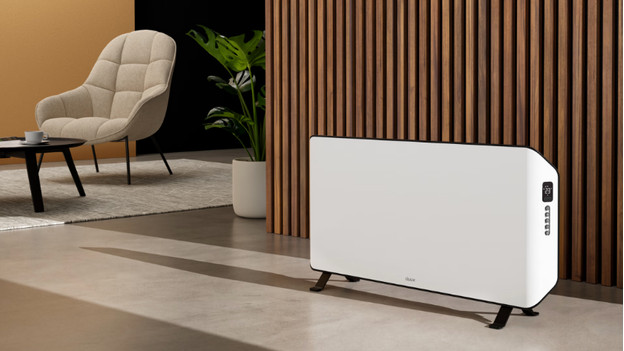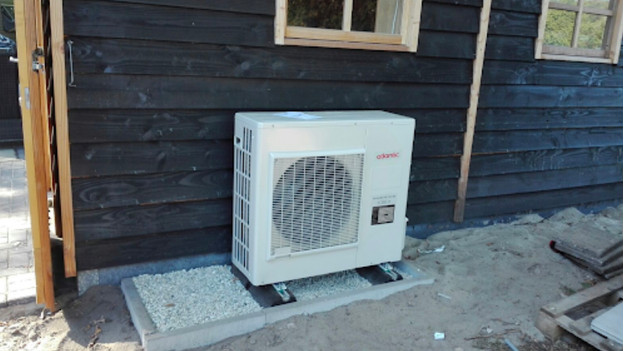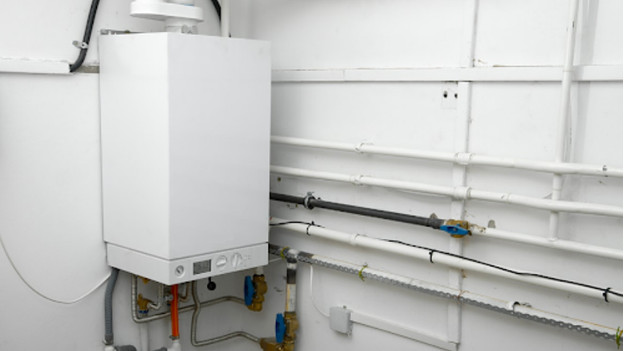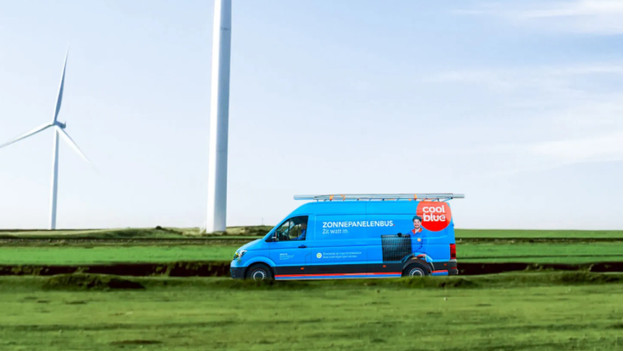
Which type of electric heating do you need?
Compare an electric heater, infrared heater, electric boiler, and heat pump
| Electric heater | Infrared heater | Heat pump | Electric boiler | |
|---|---|---|---|---|
| Suitable as | Extra heating | Extra and main heating | Main heating | Main heating |
| Usage costs | High | Medium | Low | Medium |
| Installation costs | Low | Medium | High | Medium |
| Durable | Yes | Yes | Yes | Yes |
| Suitable for any house | Yes | Yes | No | No |
Electric heater

You can easily place an electric heater in any room and use it right away. There are different types, which means you'll always find one that's suitable for your room. In addition, an electric heater heats up a room fast. This type of heater is mostly suitable as extra heating, because it uses a lot of power.
- Easy to install.
- You can use the heater right away.
- Relatively low purchase price.
- An electric heater uses a lot of power.
Infrared heater

An infrared heater is just as easy to install as an electric heater, but it uses less energy. That's because an infrared heater heats locally. It doesn't heat up the room, just the people and the objects in the room. An infrared heater is very suitable as extra heating. Do you generate your own green power, or are you affiliated with a green energy company, such as Coolblue Energy? It might be interesting for you to use infrared heaters as your main heating system.
- Uses less power than an electric heater.
- You'll feel the heat right away thanks to its aimed heating.
- Relatively low purchase price and usage costs.
- Easy to move and you can use it right away.
- The heater uses a lot of power for use as main heating system.
Heat pump

With a heat pump, you can heat your entire house electrically in the most sustainable way. The heat pump uses power to extract heat from the soil, the air, or the ground water. This means it uses energy, but less than the previously mentioned heaters. Even though the usage costs of a heat pump are low, the installation of the pump is expensive. But, you'll get a fully sustainable way of heating for your house in return.
- This is a completely sustainable way of heating.
- Low usage costs.
- You might receive a grant for installing a heat pump.
- Having a heat pump installed is very expensive.
- You'll earn back the investment only after about 7 to 15 years.
Electric boiler

An electric boiler is a good alternative for a heat pump. This way of heating is just as sustainable, but the purchasing costs of this type of heating are much lower. The usage costs are higher, though. An electric boiler is only beneficial if your house is properly insulated, you use little kWh, and your roof is suitable for solar panels.
- Completely sustainable way of heating.
- Good replacement for heat pump thanks to lower purchase costs.
- Your house has to be insulated properly.
- You should use little kWh for it to be beneficial.
- High usage costs.
Coolblue Energy

Want to save more energy? Coolblue Energy is the energy company for everyone who wants to save energy. In the Coolblue Savings Store, you'll get advice and find energy-saving products at a discount. Order today, save energy tomorrow.


